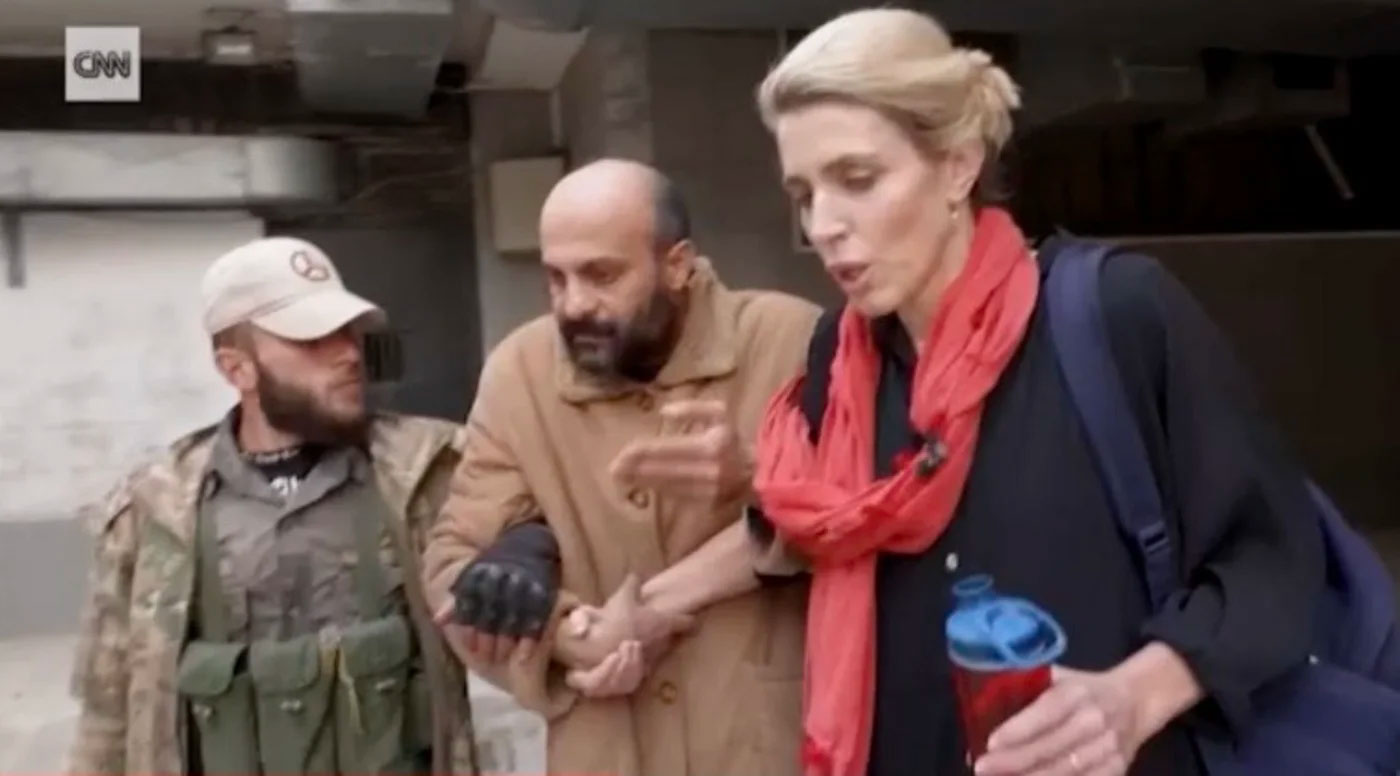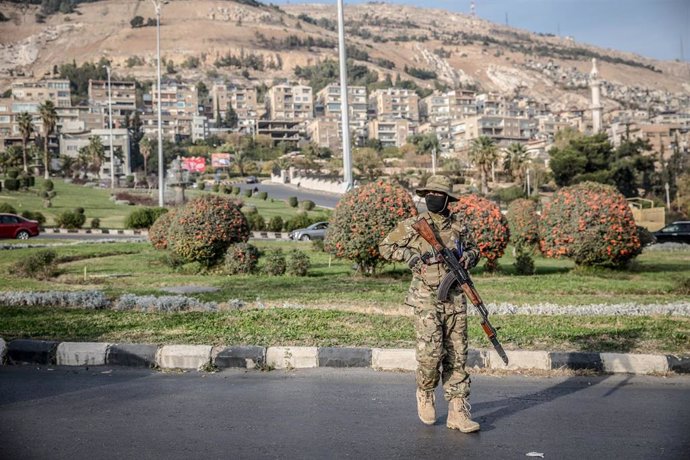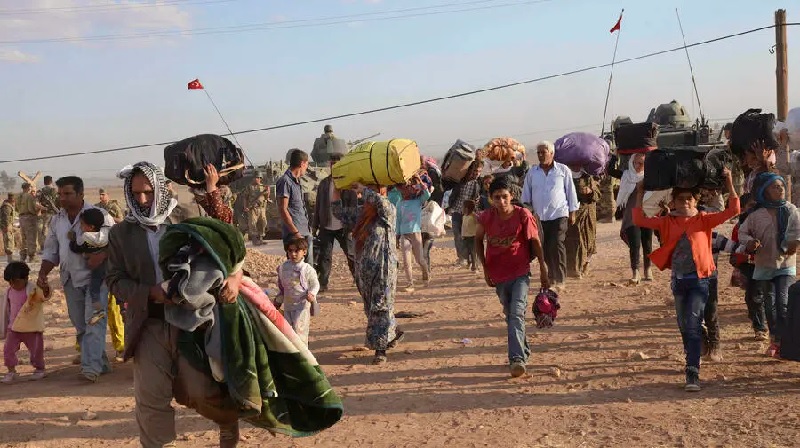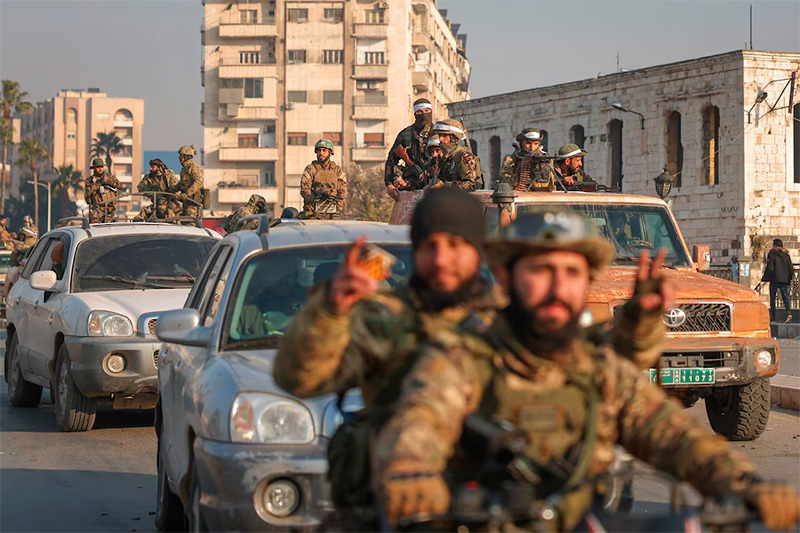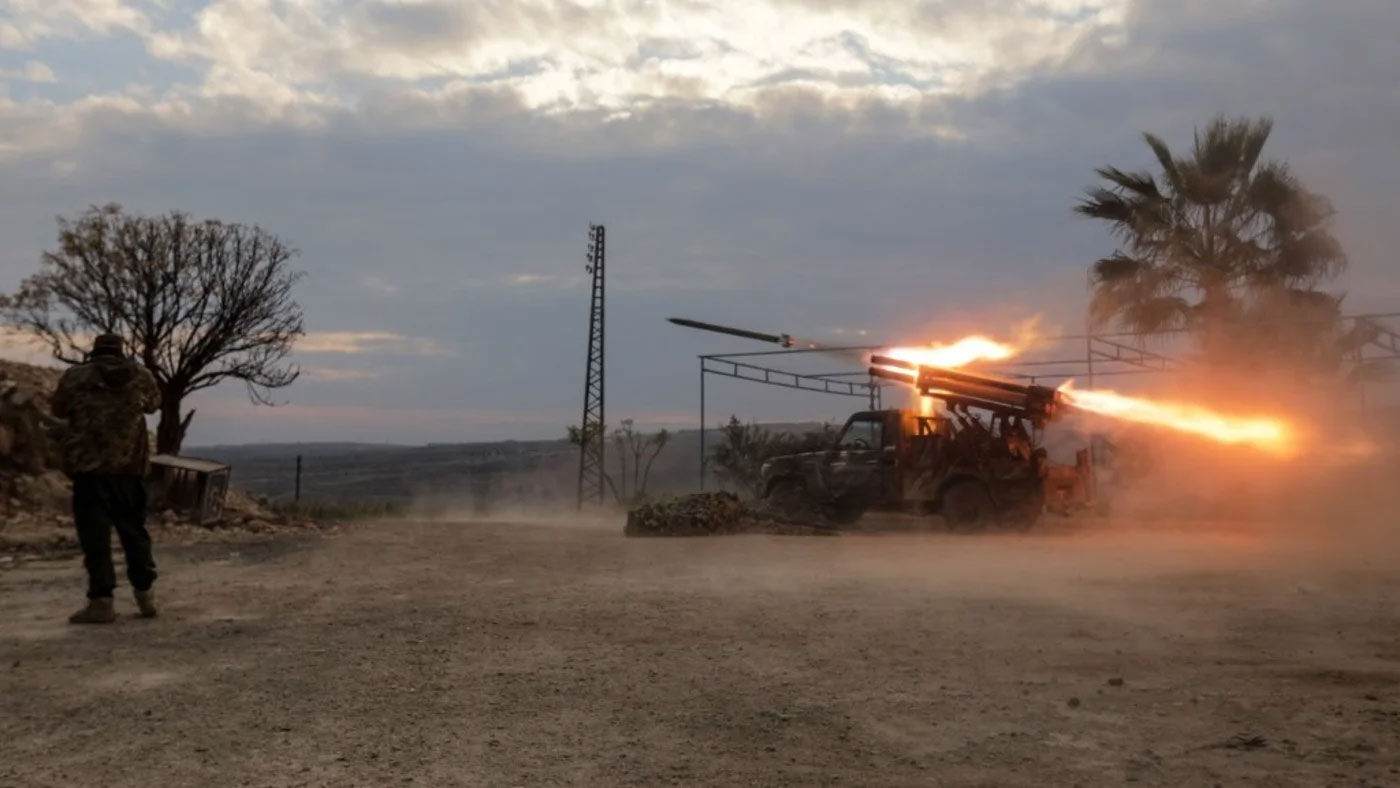By the eyes of a sniper
- In the city of Aleppo, journalist Andoni Lubaki meets a sniper fighting Al-Assad troops and is travelling. The daily life of the sniper is to watch the area and spy on opponents. And shoot.

Ali Kassmou is sitting, trying to breathe with his eyes closed. A drop of sweat fell on his forehead. “This time he’s been close,” he said, opened his eyes and lay on the ground. Next to him, still hot, he has his old rifle of Belgian origin, his best friend to walk the streets of Aleppo, according to his own words. But he rose at once: “There is still another street.” He bent to head to the narrow street. Take the mirror out of your pocket and, taking advantage of the reflex, try to see the other side of the street. He scrutinized the outline, moving the mirror from one side to the other, walking all the corners of the streets, without even leaving a slice. The rifle has hung on the back and pulled a 9 mm Magnum gun out of the back. “It’s easier to use to fight inside the house,” he says. He counted one, two, three and ran across the street, entering through the dark door at the height of which his image disappeared. Aleppoano is 20-year-old Ali Kassmou, known as Abu Ahmed on the front lines of war, prefers to call him that. It's Sniperra, sniper.
In the house of the thousand windows
Abu Ahmed loves cinema, from a young age, especially the films of war and humor. “I saw all the movies coming to Syria. Then a friend of mine opened a cybercafé and from there I have downloaded a lot of movies.” His favorites include Saving Private Ryan, The thin red line and World War II. She has a sweetheart: Enemy at the gates. “I saw that film and decided that when the war began, I also wanted to be a sniper as the protagonist of Vassily Sheichef.” Volunteer of the Syrian Free Army, its mission is to monitor two buildings and six streets controlled by Assad troops. If anyone wanted to move from one side to the other, they would see the snipers on both sides. He who crosses, if he manages to reach the other side, cannot know where the shots come from.
“I have this house in my work and here inside I have to control six streets. I can't get too close to the windows, because on the other side there's another sniper that would fire me, no doubt. Like mice and cats. I know you're there, you know I'm here, I feel you and you'll feel me. But you can't see it!"
Abu Ahmed teaches us his “workplace”. “Through the hole here I see this street and the longest of the other side of the living room. We also call it the street of the dead, because there are five corpses that rot. No one has picked them up because al-Assad soldiers shoot at anyone approaching their end. I don't shoot civilians. I have neighbors, I was born and raised here, in the shattered house there,” explains the shooter, pointing out one of the corners of the streets.
It moves silently from a completely broken room. “Most of the time I’m alone, better like that,” he says. In this first house the walls that separated the families are now covered with holes and the hallways and many windows are closed. This front of the Saif Al-Dawla district looks like a maze and it is convenient to approach someone who knows the area well, as well as the gudaris themselves fighting for the streets of the area. “You risk getting lost, and if you show up where you don’t have to show up… Take off,” says Abu Ahmed, making a finger beheading gesture, like a knife.
“This housing we are in now – he added – is that of a person who has been in school with me. We got to know each other from a young age and the other day, when I got an Internet connection, I got an email that I wanted to know how my parents' home was. I belonged to a Assad family, I didn’t tell her I worked there, but I told her I thought I was OK.”
Abu Ahmed moves from the room in silence. Know all the living rooms of the building, calcined and with smelly kitchens, all the small holes of the walls. Ahmed is the king of a house with a thousand small windows, a six-street guardian and owner of a single dream: “Win the war and finish the studies.”
The Path of Revenge
Ahmed's family, like most Syrians, is a Sunni Muslim coming from Latakia (Syrian coast) in the 1980s. The whole family had changed from Aleppo because of the threats. “Uncle Haffez was killed by al-Assad police for resistance. We were burned in the house, and my father thought it was best to come to a safer place. That’s why I say I’m always Latino, not randomized, although I’ve been born and lived in Aleppo,” explains the young Gudari.
His family is known for his acts of protest against Assad and almost all his family members have gone through prison: “Grandpa, uncle, father, brothers… Almost everyone has passed through the claws of Al-Assad.” His uncle is the commander of Saif Al-Dawla, known for the Abu Ali war nickname. “He taught me everything I know now. I received a two-hour course and he told me he was willing to go in front of me.”
Ahmed has been fighting for a year now. It is clear why: “I started fighting for revenge, like my uncle, my brother, my father and my cousins. I will never forgive what I did to my family Al-Assad. But I'm not guilty on my own, but all the military, politicians and criminals around you are also guilty. I'm not very Islamist, but all those people deserve punishment."
Allahu Akhbar!
Ahmed likes to go on Friday to the demonstrations against Assad, where he has knocked on the door. It serves him to meet his friends and replenish forces. “I like the protests of Bustan Al-Qasr. There you see why and why we are fighting,” says the young woman. Most of the young people of the battalion meet there: Abdelazziz, Ahmed, Mohammed, Yassar, Jamil.. “They are usually all, but sometimes we can’t come, we have to take care of the front,” he says. “This is Jamil, my friend – he has presented it to us. He's from Idlib, but he volunteered to Aleppo to fight. Since then we have been friends.”
Jamil reached out to us. "We are going to win the battle and a new Syria will be born with the help of Ala. The Qur’an is our most powerful weapon, the best weapon God has given us!” The demonstration has begun with the recitation of some Koran fires, once the prayers of the mosque have been completed. Among chanting and screaming, the young fighters, caught by the shoulder, advance with the children in the neck. The “rebel” Syrian flag is enthusiastically shaken in one hand, the black Islamist flag in the other. “Allahu Akhbar, Allahu Akhbar, Allahu Akhbar!” (God is the greatest) repeat, believers.
The demonstration is completed immediately after a Assad helicopter took over the repulse concentration. People are suspected of being afraid and have been hiding quickly on the portals of houses, just in case, looking at the sky. The fear of missiles coming from heaven moves those who protest faster than faith.
After that, Abu Ahmed has returned to the forefront. She took a hot red tea and went into work through the dark door. He ran again through the shattered streets, and with the pistol in his hand, he dedicated himself to recording all the rooms, watching if anyone had entered without permission. Today, Abu Ahmed is the king of the house that has a thousand windows.
Lurrikara geopolitiko bat astintzen ari da Ekialde Hurbileko mapa. Anabasaren erdian, Abdullah Öcalanen bakerako azken deiak mahai gainean jarri du eskualdeko gatazka armatu zaharrena. Ez, aurrekariek ez diote bide ematen itxaropenari, eta historiaren trena inoiz baino... [+]
SDF kurduek gidatutako koalizioak eta Siriako Gobernuak su-etena adostu dute. SDFk Siria ekialdeko eta ipar-ekialdeko eremu zabala kontrolatzen du egun, eta hitzarmenak jaso duenez, gobernuaren esku geratuko da orain.
Giza Eskubideen Siriako Behatokiak salatu du gobernuko indarrek gutxienez 800 zibil hil dituztela Latakia probintzian, "odol hotzean". Ahmed al Sharaa Siriako behin-behineko presidenteak iragarri du "batzorde independente" bat eratuko dutela gertatutakoa... [+]
The new Syrian president has withdrawn his hand to the chest of the German Foreign Minister, the minister, and denied him the handshake. Politely, Annalena Baerbock suffers contempt. Before that, the Syrian Al-Golani has reached out to the French Foreign Minister, Jean-Noel... [+]
The end of the Syrian Arab Republic has caused great surprise at the way in which it has taken place: fast and almost without resistance. However, it is not so strange when we consider that the country was destroyed, impoverished and trodden. Most Syrians have long been... [+]











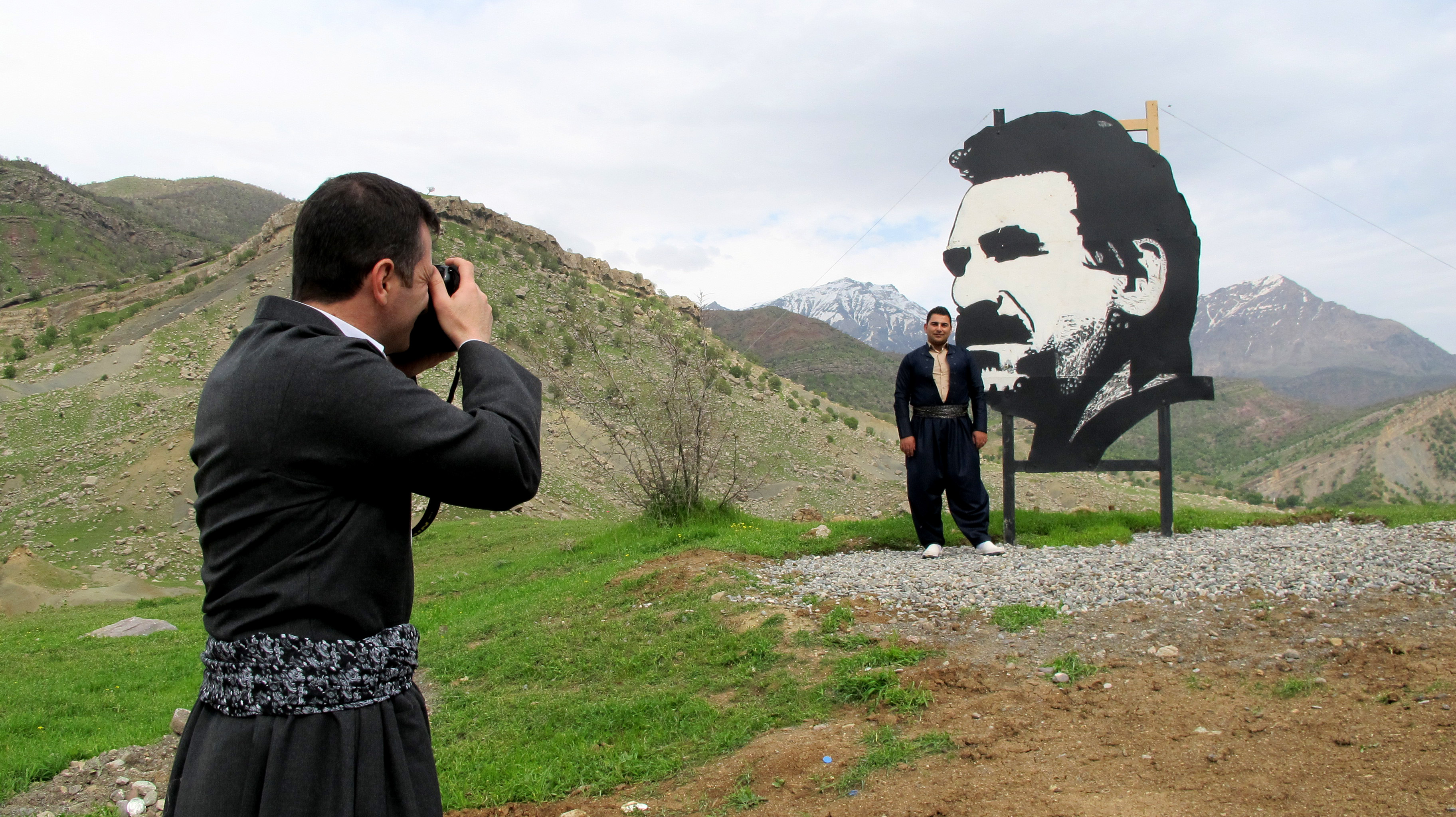

.jpg)



